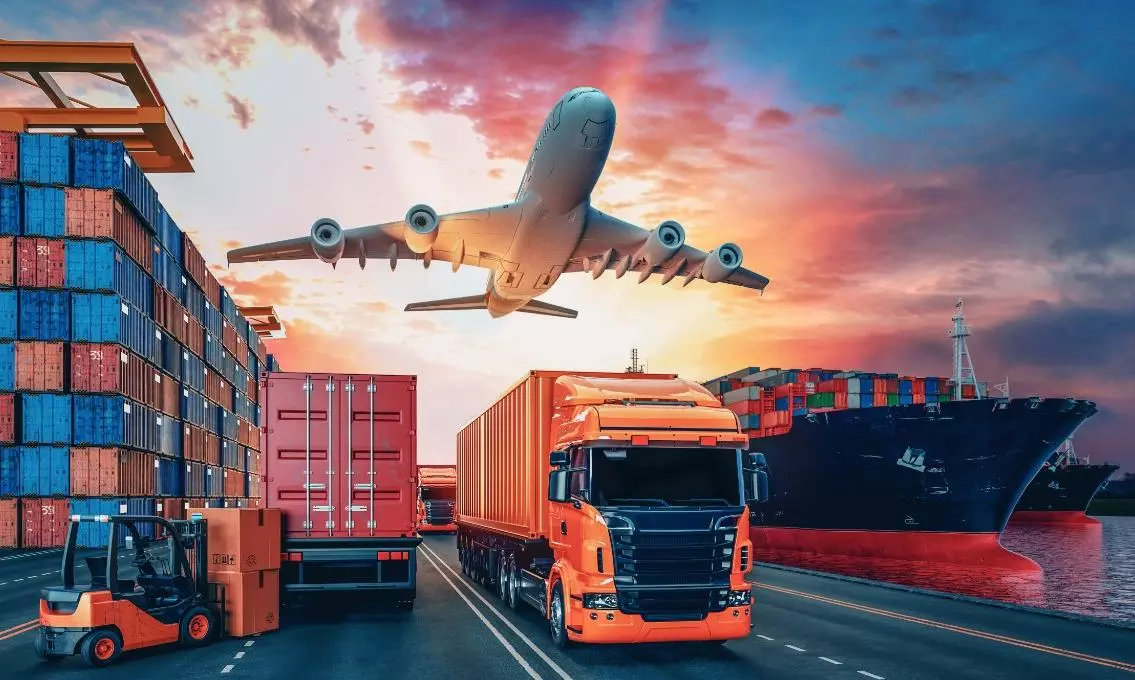How blockchain helps enterprises forecast, manage, transform business
From contract management to tracking, from invoice processing to dispute resolution and from optimizing logistics to improving forecasting, what blockchain could do.

A few years ago, shipping major Maersk and IBM conducted a joint study to track the movement of a single refrigerated consignment of avocados and roses all the way from Kenya to the Netherlands. It took a good 34 days to move from their origin to destination and what's more, over 100 people from 30 agencies were involved in the movement of this package, with 200 documents changing hands along the way. The delivery was held up for 10 days while paperwork was verified at different checkpoints. And a crucial document needed for successful transport went missing for a while, only to be found under a pile of papers later. This case study underlines common logistics nightmares faced by organizations in managing supply chain operations.
Managing the transport of orders shipped across the globe, via sea, air, road and rail, involves collaboration between vendors, suppliers, goods manufacturers and supervisory authorities. Many organizations especially SMEs still rely on manual and paper-based processes making them prone to error. And when the numbers don't add up, it is difficult to pinpoint the source of misinformation because data has to be matched across different formats, processes and organizations.
Digitalization of transport processes on a blockchain-based platform can prove to be a boon to enterprises looking to solve issues related to visibility, tallying and verification. Blockchain uses a distributed-ledger technology to create an electronic system for tracking data exchanges across the network. Linking these data exchanges to smart contracts can help automate payments, reduce delays, help businesses improve relationships with their vendors and realize strategic business benefits. In this piece, we will look at some of the benefits blockchain brings to enterprises to forecast, manage and transform their business.
Bidding and contract management
Enterprises struggle during their transportation procurement to run a bidding process or reverse auction and award contracts in a fair, auditable and timely manner. Additionally, there is extra transaction cost required for the intermediaries because the third party is an important role between the buyers and the sellers helping to trade both during the auction. In addition, it never guarantees whether the third party is trustable and unbiased.
With a blockchain based platform enterprises can ensure to their onboarded vendors of running a procurement process and choosing the highest-value service provided in a fair and auditable manner. A peer-to-peer data exchange structure for all points in the network can ensure trust to securely communicate, authenticate and transfer data to any of the other sites. Consequently, in the decentralized structure, the intermediary can be removed to reduce the transaction cost. The smart contracts are used to avoid the bid price to be leaked by the lead bidder. Some rules are written inside the smart deal which cannot be opened before the deadline.
Tracking and tracing
The operations team within an enterprise has to coordinate with multiple LSPs to track the status of various shipments both upstream and downstream in the supply chain. Delays in inbound shipments may impact production schedules whereas delays in outbound shipments may result in lost channel sales. So, it is imperative to get a full visibility into the status of shipments and sometimes highly critical in case of high value electronic components or essential health cares products like vaccines during a pandemic
On a blockchain-based transport order management platform can enable a three-way match of data coming from different sources and formats i.e TO (Transport Order) shared by shipper, eLR (Lorry Receipt) by the LSP and ePoD (Proof of Receipt) by the receiver. An GPS enabled IoT device or temperature monitor connected to the fleet can also be integrated seamlessly to track the vehicle's distance traveled or the conditions of the goods while in transit.
Automated invoice processing
Today, accounts payables teams within enterprises are challenged with different invoice formats from various onboarded logistics service providers. Verifying individual invoices with transport orders and agreed rate contracts is cumbersome and time consuming. Any small error leads to lengthy back-and-forth between the parties. Multiple versions of the invoice need to be tracked and managed, all this translates to escalated operational costs for processing vendor payments.
A smart contract on blockchain is triggered after a successful 3-way match between the TO, eLR, ePoD to automatically compute the total amount payable basis agree rate cards and SLAs. The amount to be invoiced is visible to different LSPs which help them in faster invoicing. This automated process helps accelerate the approval and disbursal of payments and reduces the strain on the in-house accounts team. In our experience, invoicing cycles with clients in the automotive sector in India, have improved dramatically with the time payable brought down by 100 days.
Fewer discrepancies and faster dispute resolution
Enterprises frequently grapple with data discrepancies during the invoice and payment process which holds up payments owed to freight carriers and lead to disputes.. The root cause of the problem, in this case, was multiple information systems in use between large enterprises and their carriers, which do not talk to each other. Additionally, the trucking industry is fragmented with small transporters who may not have any proper billing system.
Blockchain can solve this issue by helping incompatible enterprise systems exchange data with each other which leads to a shared single source of truth being shared amongst all parties. This makes it easy to flag and resolve disputes quickly. Enterprises can see upto 70% reduction in the invoices with discrepancies coming from different LSPs.
Optimizing logistics efficiency and improving forecasting
Apart from the unprecedented level of trust blockchain instils within the supply chain ecosystem, transport order management platforms also generate a wealth of insights that can be displayed via intelligent dashboards. The availability of this trusted data can enhance decision-making and help enterprises make major operational improvements.
For instance, tracking expected truck arrival times and sharing this data with distribution centres or stores can help coordinate deliveries better. Procurement-related decisions can be tweaked dynamically based on information about delays or accidents.
The adoption of blockchain technology promises significant operational and strategic benefits to forward-thinking enterprises, in the long run. And the use cases outlined here are just an indication of the vast business opportunities that lie ahead for those who embrace this fast-evolving technology.
The views and opinions expressed in this article are those of the author and do not necessarily reflect the views of Indian Transport & Logistics News.

Vaideeswaran Sethuraman
Vaideeswaran Sethuraman is the founder and CEO of the multi-tier supply chain technology orchestration platform Param.Network.


